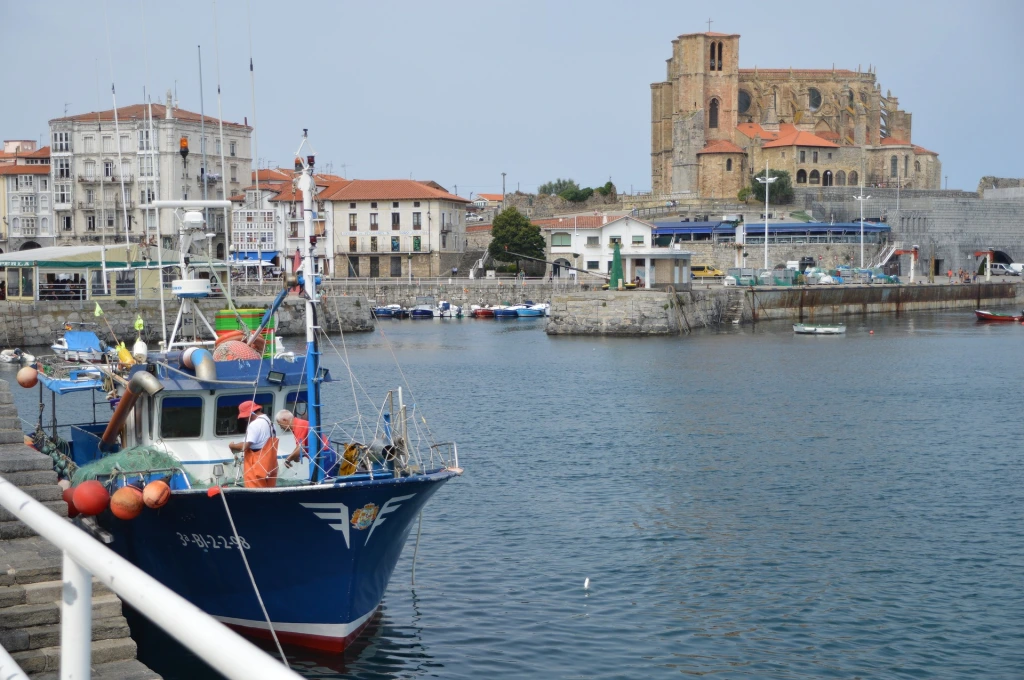First, where exactly is Basque country?
Basque Country lies in the North of Spain near the Bay of Biscay, and in South Western France. Though it straddles both Spain and France, the people do not consider themselves Spanish or French, and do not say they live in Spain or France, they say they are Basque and live in Basque Country.

Why are the Basque and their country special?
In short. The people and the language.
The Basque are thought to be the oldest people (ethnic group) in Europe. They are closest descendants of the Paleolithic people who established the first settlements in Britain over 10 000 years ago.
Interesting fact: The Basque are genetic blood-brothers of the Celts, the Welsh and Irish
The Basque have very original DNA. According to The Guardian, notes and queries, The Basques have the highest concentration of type O blood in the world, more than 50% of the population, with an even higher percentage in remote areas where Basque is more widely spoken. Basques also have a higher incidence of Rhesus-negative blood than anyone else in the world.
The Basque language, or Euskera is completely unique and unrelated to any other language, i.e. Latin, French or Greek, in the world. It is the oldest language in Europe, and can be traced back to the Neolithic period.
The Basque have a very interesting national sport, pelota, which is a cross between handball and squash but way more fast moving. The ball is the most lethal of all sports, three quarters the size of a baseball and harder than a golf ball and can be hurtled up to 188mph!
The ‘Running of the Bulls’ is a famous Basque festival held in Pamplona in July.
The Basque are said to live by the vendetta. If they hate you it is until death. The same goes for when they love.

Story excerpt…
“You ran from me last night.” Santiago leaned down to her ear. “Do not ever do that again. Always finish what you start with me.”
Raw excitement fueled with mortifying lust raged to life inside of her again. “I did finish.” She snapped. “Wasn’t that enough?”
A smile spread across his lips and against her skin. “Not even close.”
She struggled away from his grasp and stared up at the lazy satisfaction on his face.
“When you’re on your back, twisted in my sheets and covered in me, that will be just the beginning of enough…”
Eating, for the Basque is a national pastime.
They have over 1500 secret gourmet societies called txokos (pronounced chokos) where members go for eating entertainment; members eat and cook together, experimenting with new foods and preparation, with lots of singing and dining and socializing.
The Basque also have a very famous wine region – La Rioja, where their most famous drink, txakoli (pronounced chacoli) comes from; a slightly sparkling, dry white wine, which goes well with pintxos.

Wait, what the Heck are Pintxos??
Basque country has a rich culinary heritage and is best known for Pintxos – small, composed bites that are not unlike tapas, but are worlds different.
Pintxos, pronounced “pinchos” are a small, savory canapés presented in a myriad of colors, forms and flavor combinations, laid out on giant platters and spread along every counter in town. Twice a day, hundreds of people pour into the streets of San Sebastien for a traditional “pintxos crawl,” moving from bar to bar: tasting, drinking and socializing.
Gildas – White anchovy, olive and pickled pepper skewer (named after 1946 Rita Hayworth role).
Soft Boiled Quail Egg with Black Anchovy and Piquillo Peppers.
Fried Eggplant with Honey and Goat Cheese.
Wood-Fired Chorizo with Pickled Carrots.
One of the easiest ways to spot a good pintxos bar is to look at the floor. If it’s covered in napkins and skewers, it’s worth going in. Those in the know drop everything on the floor after finishing, leaving the waiters to quickly clear the plates (until the bar closes). The bars are lined with plates of different cold pintxos that you help yourself to. Be sure to save room for the hot ones, which are listed on blackboards and cooked to order.

STORY EXCEPT
Katrin sipped again, the savory liquid coaxing her to relax further, the smooth taste flowing down her throat and unfurling her muscles. She moved the delicate bundle of flavors through her mouth. “My Heaven’s this is good.” She closed her eyes and inhaled.
Santiago smiled and lifted his glass. “To trying new things.”
She sipped and another burst of flavor sprang to life over her tongue. “Definitely time to try new things . . .”
THE BASQUE WERE GREAT TRAVELLERS
and have been deeply affected by Diaspora. Settlements can be found in Ireland, Quebec Canada and the American Midwest! Needless to say they were top notch sailors.
They were also great whalers and have whaling settlements in the North Atlantic, Newfoundland, Canada that date back to the 1500s.

Blog information and photos from:
http://www.thelondonfoodie.co.uk/2013/08/the-london-foodie-goes-to-spain-san.html. http://compass.coxandkings.co.uk/compass/travel-articles/a-guide-to-pintxos-in-san-sebastian/. Here’s Why You Have To Try Basque Cuisine, According To A Basque Chef. Alison Spiegel. Huffpost Taste. July, 2014.https://commons.wikimedia.org/wiki/File:Pintxo_de_pulpo_con_alcachofa.jpg


